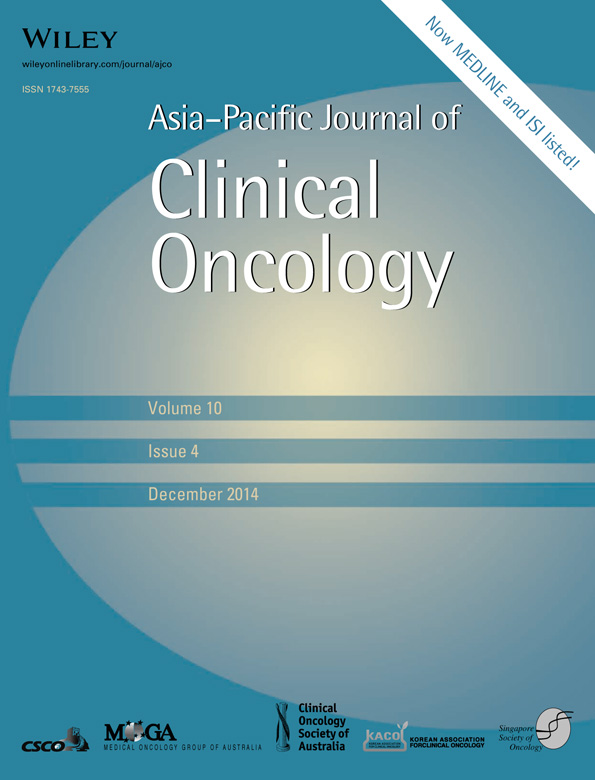Retrospective analysis on the efficacy of bevacizumab with FOLFOX as a first-line treatment in Japanese patients with metastatic colorectal cancer
Abstract
Aims
Past reports have suggested that the addition of bevacizumab (BV) to oxaliplatin combined with 5-fluorouracil (5-FU) and folinic acid (leucovorin) (FOLFOX4) provides a limited survival benefit in metastatic colorectal cancer (mCRC). Our study aimed to evaluate the survival benefits of a FOLFOX4 + BV regimen.
Methods
Patients with mCRC who started treatment between April 2005 and July 2008 were evaluated in this retrospective cohort study. Patients received FOLFOX4, or FOLFOX4 + BV after the approval of BV in 2007. The two cohorts treated before and after BV approval were compared. Primary end-points were progression-free survival (PFS), overall survival (OS) and response rate (RR).
Results
A total of 213 patients received either FOLFOX4 (n = 128) or FOLFOX4 + BV (n = 85). For FOLFOX4 and FOLFOX4 + BV respectively, median PFS was 9.9 and 17.0 months (HR, 0.58; 95% CI, 0.42–0.82; P = 0.002), median OS was 20.5 and 38.8 months (HR, 0.49; 95% CI, 0.34–0.71; P < 0.001), respectively. Patients who received 5-fluorouracil plus leucovorin (FL) as maintenance therapy during oxaliplatin suspension in both FOLFOX4 (n = 6) and FOLFOX4 + BV (n = 46) groups showed a trend to improved median PFS and median OS.
Conclusions
The additive effect and potential survival benefits of adding BV to the FOLFOX4 regimen in first-line treatment of mCRC were demonstrated. Maintenance FL during suspension of oxaliplatin appeared to be an important factor in better survival.




